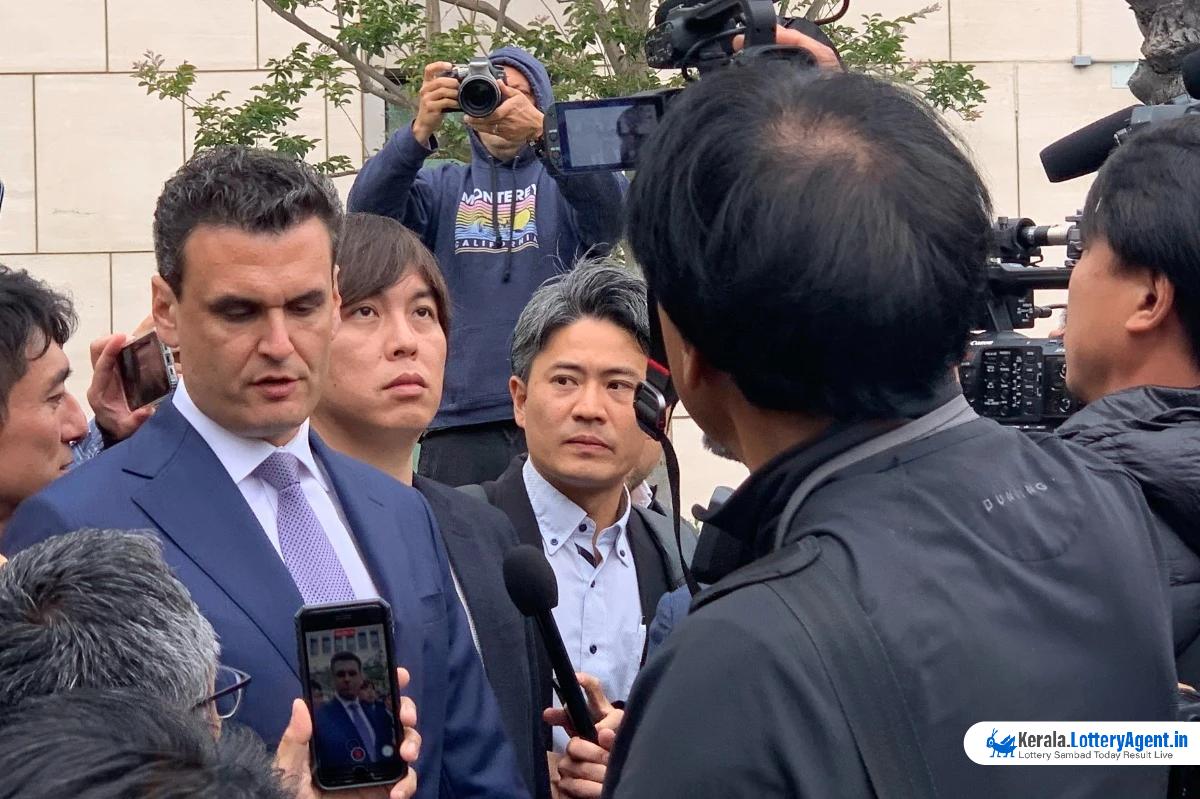
In a dramatic courtroom scene on Tuesday, Ippei Mizuhara, dressed in a dark suit with an untucked shirt and no tie, stood before Judge John A. Holcomb at the Ronald Reagan Federal Building and Courthouse in Santa Ana, California. Facing an audience packed with over 100 media representatives, Mizuhara confessed to his desperate actions, saying, “I worked for Victim A and had access to his accounts. I had fallen into major gambling debt. The only way I could think of to pay that was to send money from Victim A’s account” to an illegal bookmaker. With these words, Mizuhara formally pled guilty to one count of bank fraud and one count of subscribing to a fraudulent tax return.
The consequences of Mizuhara’s actions are severe, with the potential penalty reaching up to 33 years in prison and a $1.5 million fine. This latest court appearance was a significant step in a closely watched legal drama, previously held at the Roybal federal complex in downtown Los Angeles. The court, in conjunction with the U.S. Probation Office, will now compile a comprehensive pre-sentencing packet for Judge Holcomb to consider during sentencing.
The media swarm around the courthouse on Santa Ana’s 4th Street captured the intense public interest in the case, significantly affecting local traffic. Inside the courtroom, Mizuhara limited his remarks to responding to Holcomb’s pointed questions, while his defense attorney, Michael Freedman, strategically declined to comment amid the throng of reporters as the pair exited the courthouse.
Mizuhara’s legal troubles began in April when he voluntarily turned himself in following revelations from federal investigators. The investigation uncovered Mizuhara’s theft of $17 million from Shohei Ohtani, referred to in court documents as “Victim A,” in an attempt to cover massive gambling debts. Crucially, although not directly implicated in the Wayne Nix illegal gambling ring, Mizuhara’s betting ties with Mathew Bowyer, another figure under federal scrutiny though also not yet charged, were highlighted during the proceedings.
In a related crackdown, Nix is set for sentencing in September. The fallout has already seen consequences for others in the gambling web, including former Las Vegas casino executive Scott Sibella. Sibella received a year of probation and a $9,500 fine in early May for failing to file a suspicious activity report when Nix gambled at MGM Grand under his supervision.
.
Mizuhara, however, faces a starkly more severe outcome. As acknowledged in his plea deal and court admissions, Mizuhara not only deceived Ohtani but also manipulated the baseball star’s agents, financial managers, and even impersonated him in 24 phone calls with an Arizona bank. US Attorney Jeff Mitchell emphasized Mizuhara’s systematic fraud, noting his regular unauthorized access to Ohtani’s bank account to initiate the wire transfers.
The federal authorities have consistently identified Ohtani as a victim in their investigation. Major League Baseball (MLB) has since released a statement clearing Ohtani of any wrongdoing, underlining that the Dodgers star was a “victim of fraud and this matter has been closed.”
Mizuhara’s fraudulent activities extended beyond mere debt repayment. According to Mitchell, Mizuhara diverted funds for personal expenses as well, including purchasing high-value baseball cards of legends like Yogi Berra, Juan Soto, and Ohtani. Mizuhara even used Ohtani’s debit card for $60,000 worth of dental work and later funneled the reimbursement check into his own account with the intent to sell the baseball cards for profit.
Throughout Mizuhara’s deceptive operations, he misled Ohtani’s sports agents and financial advisors by denying them access to Ohtani’s accounts, claiming the baseball prodigy wanted these details kept “private.”
Tuesday’s court appearance had a formal opening by Judge Holcomb, who welcomed the attendees but firmly prohibited any recording. Holcomb quizzed Mizuhara about his competency to stand trial and detailed the waived rights resulting from his guilty plea. The judge made clear that sentencing with a possible imprisonment would be the next step, concluding with a somber note: “all that will be left of your case is for me to impose sentencing, which may include imprisonment.”
Mizuhara’s total offense level is classified at 29, but his cooperative stance and lack of prior offenses could lead to a mitigation of up to four levels. Regardless of the eventual sentence, Mizuhara is obligated to make restitution to Ohtani and pay additional taxes amounting to $1.15 million, exclusive of interest and penalties.
This high-profile case adds to MLB’s recent struggles concerning gambling violations. The league is concurrently tackling investigations involving other players such as former Ohtani teammate David Fletcher, his associate Cody Schultz, and San Diego Padres shortstop Tucupita Marcano. Each of these cases exposes the pervasive shadow of betting on baseball, which starkly contravenes MLB rules.
Just hours before Mizuhara’s fateful court appearance, the league imposed a lifetime ban on Marcano for 231 MLB-related bets, including 25 on his team, the Pittsburgh Pirates. The scandal underscores baseball’s ongoing battle with integrity and the significant repercussions awaiting those entangled in gambling activities.












